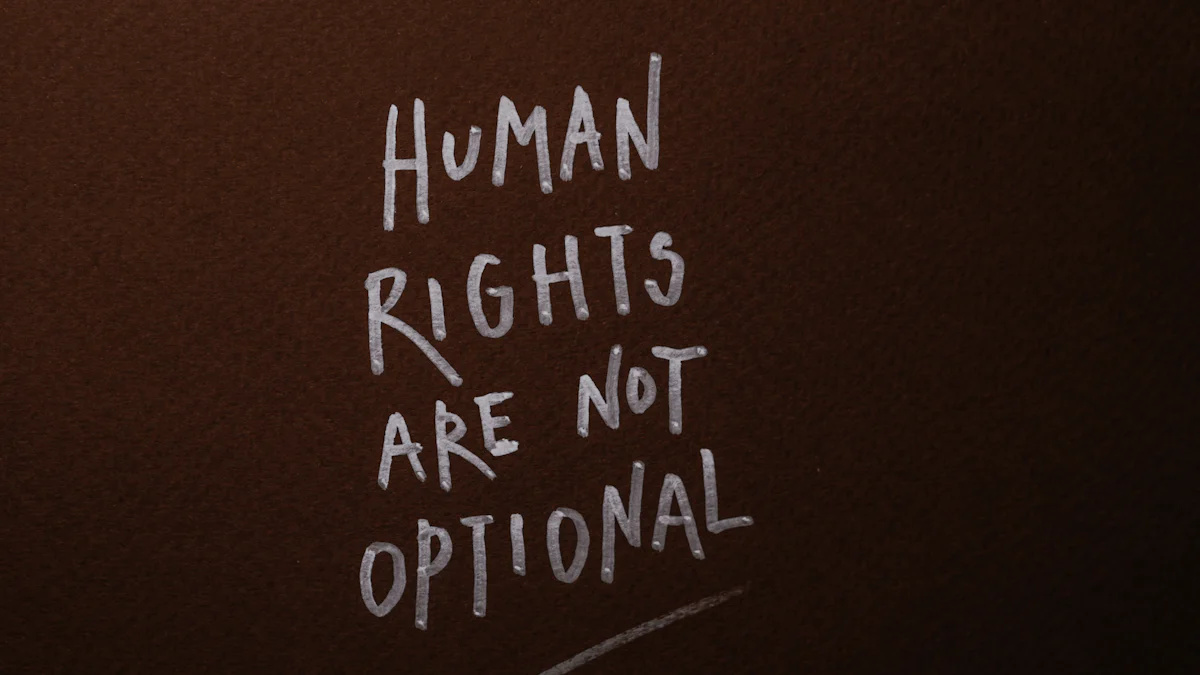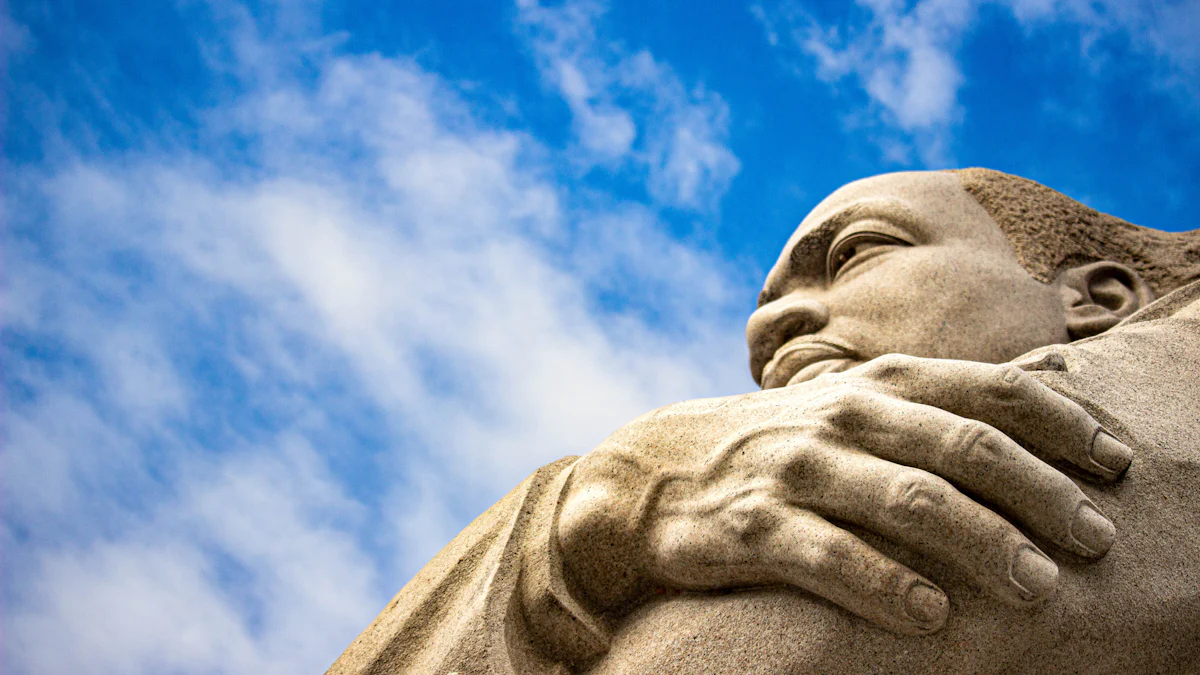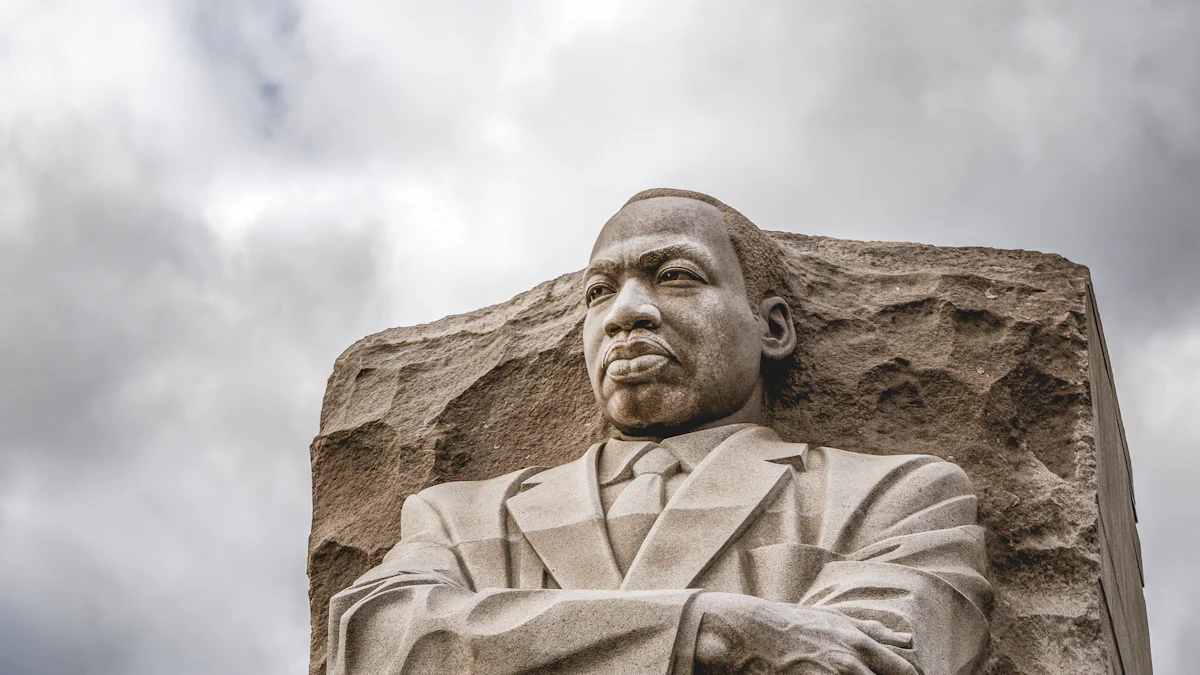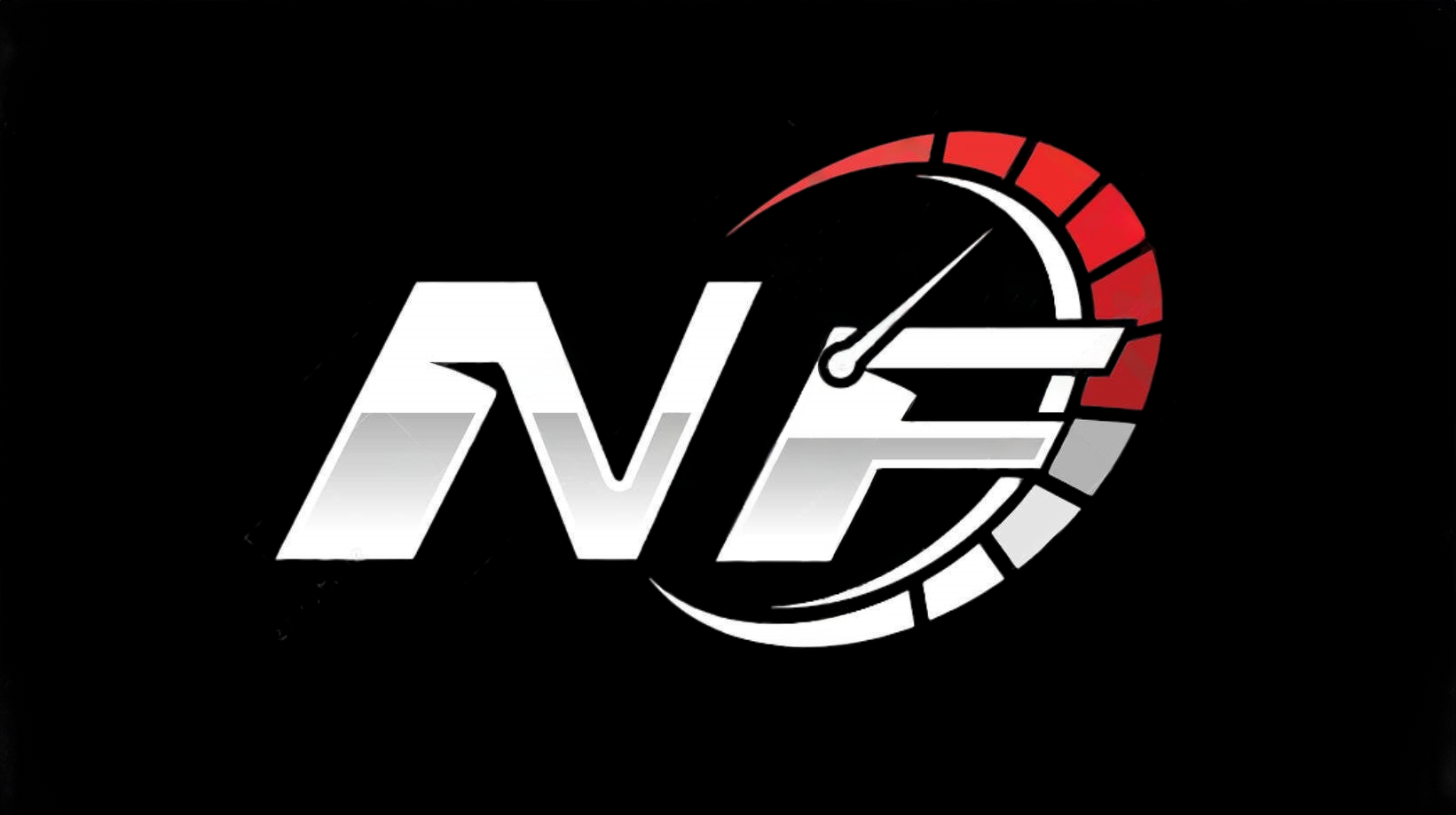Why Martin Luther King Jr Day Matters in 2025

Martin Luther King Jr. Day, celebrated on the third Monday in January, is more than just a federal holiday. It calls you to reflect on the values of equality, justice, and service. This national holiday honors Dr. King's unwavering fight for civil rights and his dream of a united society. On January 15, millions of Americans participate in service projects, from food drives to mentoring programs, embodying his belief in helping others. The Census Bureau and AmeriCorps report growing engagement in these activities, showing how the King Holiday continues to inspire action. Even unexpected connections, like Motorcycle Fairings, remind us of resilience and adaptability—qualities Dr. King championed.
Key Takeaways
Martin Luther King Jr. Day is a time to help others. Join local activities to honor Dr. King's work and create change.
Dr. King's belief in nonviolence still matters today. Use calm talks to solve problems and build understanding in your area.
Teach kids about Dr. King's ideas. Show them why kindness, leading others, and helping are important for the future.
Talk about fairness for all races. Use this day to start chats about ending racism and supporting fairness.
Celebrate by going to local events. Take part in parades, speeches, and gatherings to remember Dr. King's dream.
The Historical Significance of Martin Luther King Jr. Day

Dr. King's Legacy
Leadership in the Civil Rights Movement
You cannot discuss the civil rights movement without recognizing Dr. Martin Luther King Jr.'s pivotal role. As a civil rights leader, he founded the Southern Christian Leadership Conference (SCLC), which became a driving force for change. His leadership during the Montgomery Bus Boycott and the March on Washington in 1963 showcased his ability to unite people for a common cause. During the march, he delivered the unforgettable "I Have a Dream" speech, which continues to inspire millions. Through his efforts, you see how one voice can spark a movement that reshapes history.
Dr. King also oversaw significant victories, such as the desegregation of schools and public transportation. These achievements remind you of the power of persistence and the importance of standing up for justice.
Philosophy of Nonviolence and Equality
Dr. King believed in nonviolent social change as the most effective way to achieve equality. His philosophy, inspired by Mahatma Gandhi, emphasized peaceful protests and civil disobedience. You can see this approach in events like the Selma to Montgomery marches, where participants faced violence with courage and dignity. His commitment to nonviolence earned him the Nobel Peace Prize in 1964, a testament to his unwavering dedication to justice.
Establishing the Federal Holiday
The Campaign for Recognition
The journey to establish Martin Luther King Jr. Day as a federal holiday began shortly after his assassination in 1968. Representative John Conyers introduced the first motion just four days later. However, the road was not easy. In 1979, the bill fell short by five votes in the House of Representatives. Despite this setback, supporters like Stevie Wonder and Coretta Scott King rallied millions. A petition with six million signatures and public events brought national attention to the cause.
Legislative Milestones and Challenges
The campaign faced significant opposition, including concerns about costs and honoring a private citizen. Some states resisted recognizing the holiday. In the Senate, Senator Jesse Helms attempted to block the bill with a filibuster. Yet, perseverance won. In 1983, Congress passed the bill, and President Ronald Reagan signed it into law. The first observance of the King Holiday occurred in 1986, and by 2000, all 50 states officially recognized it.
The Role of Coretta Scott King
Advocacy for the Holiday
Coretta Scott King played a crucial role in making Martin Luther King Jr. Day a national holiday. She dedicated herself to ensuring her husband’s birthday, January 15, became a day of observance. Her tireless advocacy led to the first national celebration in 1986. Through her efforts, you see how one person’s determination can create lasting change.
Preserving Dr. King's Vision
After Dr. King’s passing, Coretta Scott King worked tirelessly to preserve his legacy. She established The King Center, a living memorial to his life and work. The center became a hub for education and activism, ensuring his dream remained alive. She also focused on preserving his writings and the sites associated with his life, such as his birthplace and Ebenezer Baptist Church. Her efforts remind you of the importance of honoring history while inspiring future generations.
The Evolution of Martin Luther King Jr. Day
From Controversy to National Acceptance
Early Resistance to the Holiday
When the idea of Martin Luther King Jr. Day first emerged, it faced significant opposition. Some argued that honoring a private citizen contradicted tradition since Dr. King never held public office. Others raised concerns about the financial burden of a paid holiday for federal employees. Despite these challenges, advocates persisted, believing that Dr. King's contributions to civil rights deserved national recognition.
Recognition Across All 50 States
Over time, the holiday gained widespread acceptance. By 2000, all 50 states officially recognized Martin Luther King Jr. Day. This shift reflected a growing understanding of Dr. King's impact on American history. Today, the holiday unites people across the nation, reminding you of the importance of justice and equality.
Cultural and Educational Impact
Promoting Civil Rights Awareness in Schools
Schools play a vital role in keeping Dr. King's legacy alive. Many educators encourage students to reflect on his speeches and writings, helping them connect his message to modern issues. Others organize service activities, such as food drives or mentoring programs, to teach the value of community involvement. These efforts inspire young people to take action and promote empathy across diverse backgrounds.
Community Events Honoring Dr. King's Legacy
Communities across the country host events that celebrate Dr. King's vision. For example:
The Unity Service in Little Rock brings people together with songs, prayers, and speeches focused on civil rights.
Emory University’s King Week features a "Day On" where students volunteer in Atlanta, embodying Dr. King's commitment to service.
These gatherings remind you of the power of collective action in creating a more just society.
The National Day of Service
Encouraging Volunteerism Nationwide
The MLK Day of Service transforms the holiday into a call to action. It encourages you to contribute to your community, whether through small acts of kindness or large-scale projects. Many organizations, including workplaces, support this initiative by offering volunteer opportunities or hosting events that address local needs.
Examples of Service Projects Inspired by the Holiday
Across the nation, the day of service inspires impactful projects:
HandsOn Northwest North Carolina pairs children with college students for literacy activities.
Jersey Cares mobilizes volunteers for school transformations and park cleanups.
United Way of Genesee County organizes food packing events, providing thousands of meals to those in need.
These efforts show how you can honor Dr. King’s legacy by making a difference in your community.
Observing Martin Luther King Jr. Day in 2025

Nationwide Celebrations
Parades, Marches, and Public Events
Across the country, you can find vibrant celebrations that honor Dr. King's legacy. In Fort Worth, the Neighborhood MLK Parade & Celebration on January 18 will feature a lively parade, live music, food trucks, and local vendors. Atlanta, home to the King Center, will host its annual Martin Luther King Jr. Commemorative Service. These events bring communities together, reminding you of the power of unity and collective action. Whether you attend a march or join a local celebration, you contribute to keeping the spirit of the king holiday alive.
Speeches and Tributes to Dr. King
Speeches during the king holiday often inspire you to reflect on Dr. King's teachings and take action. Speakers emphasize themes like community service, love, and understanding. At the West Hartford celebration, leaders will highlight servant leadership and the importance of turning inspiration into action. Dr. King's iconic "I Have a Dream" speech continues to resonate, urging you to fight for racial equality and justice. These tributes remind you that anyone can serve and make a difference.
Community Service and Advocacy
Volunteer Opportunities and Their Impact
Martin Luther King Jr. Day is not just a federal holiday; it is a day of public service. You can join countless volunteer opportunities, from food drives to park cleanups. Organizations like United Way and Jersey Cares mobilize volunteers to address local needs. By participating, you honor Dr. King's belief in helping others and create a lasting impact in your community.
Corporate and Organizational Involvement
Many companies embrace the king holiday by encouraging employees to give back. Some offer paid volunteer time off, while others organize donation drives or host training sessions on racism and bias. These efforts show how businesses can play a role in advancing Dr. King's vision. When you see corporations stepping up, it inspires you to take action in your own way.
Reflection and Education
Media and Literature Highlighting Dr. King's Teachings
Books, documentaries, and films about Dr. King provide powerful ways to reflect on his life. You can explore his speeches, like "Letter from Birmingham Jail," to understand his philosophy of nonviolence. Media outlets often feature programs that highlight his contributions, helping you connect his teachings to modern challenges.
Discussions on Racial Equality and Justice
The king holiday sparks important conversations about racial equality. Schools, community centers, and workplaces host discussions that encourage you to think critically about systemic racism. These dialogues remind you of the work still needed to achieve justice and inspire you to take meaningful steps toward change.
Why Martin Luther King Jr. Day Matters in 2025
Addressing Modern Challenges
Combating Systemic Racism
Martin Luther King Jr. Day continues to shine a light on the fight against systemic racism. You see this in efforts to address economic inequality, a challenge Dr. King highlighted in his final message. His belief in the connection between civil rights and economic equality remains relevant today. Modern movements focus on tackling disparities in employment, housing, and education. Community service projects, like mentoring youth or organizing food drives, reflect his vision of fostering empathy and collaboration across diverse backgrounds. By participating, you contribute to creating a society where everyone has equal opportunities.
Promoting Unity Amid Political Divisions
In a time of political divisions, the king holiday reminds you of the power of unity. Dr. King's teachings encourage you to recognize systemic oppression and engage in meaningful social movements. For example, movements like Black Lives Matter continue his legacy by addressing racial injustice. Educating future generations about his work builds bridges across divides. When you embrace his values of love and understanding, you help create a more inclusive and harmonious society.
Key Point | Explanation |
|---|---|
Understanding Systemic Oppression | Recognize and address ongoing systemic racism and discrimination. |
Engaging in Social Movements | Participate in movements like Black Lives Matter to continue Dr. King's work. |
Teaching Across Generations | Educate youth about Dr. King's legacy to promote unity and justice. |
Inspiring Future Generations
Teaching Dr. King's Values to Youth
Dr. King's values inspire young minds to build a better future. You can teach youth the importance of community service, showing them how small actions strengthen communities. Encourage them to embrace differences, promoting love and nonviolence. Leadership, compassion, and perseverance should be central to their education. These lessons go beyond academics, shaping them into empathetic and ethical individuals.
Empowering Young Leaders to Advocate for Justice
Young leaders today carry Dr. King's legacy forward. Advocates like Jadayah S. Muhammad and Rashad Staton empower communities through their work. Programs focusing on economic empowerment and trauma-informed services equip youth to drive social change. When you support these initiatives, you help nurture the next generation of changemakers who will fight for justice and equality.
A Call to Action
Encouraging Active Participation in Civil Rights Efforts
The king holiday is a call to action for everyone. You can honor Dr. King's legacy by participating in civil rights efforts. Join peaceful protests, voter registration drives, or community service projects. These actions echo historic movements like the Montgomery Bus Boycott and the March on Washington. Your involvement keeps the spirit of the civil rights movement alive.
Keeping Dr. King's Dream Alive in 2025 and Beyond
Dr. King's dream of equality and justice is not just a vision of the past. It is a challenge for you to meet today. By reflecting on his teachings and taking meaningful action, you ensure his dream lives on. Whether through service, advocacy, or education, your efforts contribute to a brighter, more equitable future.
"Life's most persistent and urgent question is, 'What are you doing for others?'" – Dr. Martin Luther King Jr.
This federal holiday, celebrated on the third Monday in January, is your opportunity to answer that question.
Lessons from Martin Luther King Jr. Day for Broader Communities
Applying Dr. King's Teachings to Everyday Life
Building Unity Across Diverse Groups
Dr. King’s teachings offer powerful lessons for fostering unity in today’s diverse world. You can start by building alliances across differences. Dr. King believed that collaboration among people from various backgrounds strengthens communities. By working together, you create bonds that transcend race, religion, or socioeconomic status.
Nonviolence remains another cornerstone of his philosophy. Resolving conflicts peacefully can bridge divides and encourage mutual respect. When you choose dialogue over confrontation, you pave the way for understanding. Empathy plays a crucial role here. Taking the time to listen to others’ experiences fosters compassion and helps you see the world through their eyes.
These principles remind you that unity doesn’t happen by chance. It requires effort, patience, and a commitment to seeing the humanity in everyone. Whether you’re organizing a community event or simply engaging in a conversation, you can apply these lessons to bring people together.
Promoting Equality in Workplaces and Communities
Dr. King’s vision of equality extends beyond civil rights. It applies to workplaces and local communities as well. You can promote fairness by advocating for inclusive hiring practices and equal pay. Supporting diversity initiatives ensures that everyone has a seat at the table.
In your community, you can champion equality by volunteering for causes that uplift marginalized groups. Participating in service projects, like those inspired by Martin Luther King Jr. Day, fosters collaboration and empathy. These actions reflect Dr. King’s belief that justice begins with small, meaningful steps.
Unexpected Connections
How Motorcycle Fairings and Community Service Align
At first glance, motorcycle fairings and community service might seem unrelated. However, both embody resilience and adaptability—qualities Dr. King championed. Motorcycle fairings protect riders from harsh conditions, just as Dr. King’s teachings shield communities from division and injustice.
When you think about it, customizing motorcycle fairings mirrors the process of building a better society. Both require creativity, dedication, and a willingness to adapt. Just as you personalize a bike to reflect your style, you can tailor your efforts to meet the unique needs of your community.
Lessons in Resilience and Adaptability from Dr. King's Legacy
Dr. King’s life exemplifies resilience. He faced immense challenges yet remained steadfast in his commitment to justice. His nonviolent resistance showed how to persevere in the face of adversity.
Adaptability also defined his leadership. Dr. King adjusted his strategies to address evolving social issues, uniting diverse groups under a common cause. His legacy continues to inspire modern movements tackling poverty, inequality, and systemic racism.
You can draw from these lessons in your own life. Whether you’re navigating personal challenges or contributing to social change, resilience and adaptability will help you succeed. Even unexpected connections, like those between motorcycle fairings and community service, remind you of the importance of staying strong and flexible in pursuit of your goals.
"The time is always right to do what is right." – Dr. Martin Luther King Jr.
Martin Luther King Jr. Day, as a federal holiday, reminds you of the progress achieved and the work still needed to ensure equality and justice. In 2025, this day inspires you to reflect on Dr. King’s teachings and take action in your community. Whether through service, education, or advocacy, you can honor his legacy. By working together, you help create a society that values fairness and unity. Just like customizing motorcycle fairings, building a better world requires creativity, dedication, and resilience.
"The time is always right to do what is right." – Dr. Martin Luther King Jr.
FAQ
What is the purpose of Martin Luther King Jr. Day?
Martin Luther King Jr. Day encourages you to honor Dr. King’s legacy by reflecting on equality, justice, and service. It inspires you to take action in your community, whether through volunteerism, education, or advocacy.
How can you observe Martin Luther King Jr. Day in 2025?
You can participate in parades, attend speeches, or volunteer for service projects. Reflecting on Dr. King’s teachings through books, documentaries, or discussions also helps you connect with his vision of justice and unity.
Why is service important on this holiday?
Service embodies Dr. King’s belief in helping others. By volunteering, you strengthen your community and promote empathy. Whether you mentor youth, clean parks, or organize food drives, your actions make a meaningful impact.
How does Martin Luther King Jr. Day inspire future generations?
The holiday teaches youth about leadership, compassion, and perseverance. It encourages them to embrace diversity and advocate for justice. By learning Dr. King’s values, young people grow into changemakers who shape a better future.
What lessons can you apply from Dr. King’s legacy to everyday life?
Dr. King’s teachings remind you to build unity, resolve conflicts peacefully, and promote fairness. Whether you’re fostering inclusivity at work or volunteering in your community, his values guide you toward creating a more just and harmonious society.
Tip: Just like customizing motorcycle fairings requires creativity and resilience, building a better world demands dedication and adaptability.

